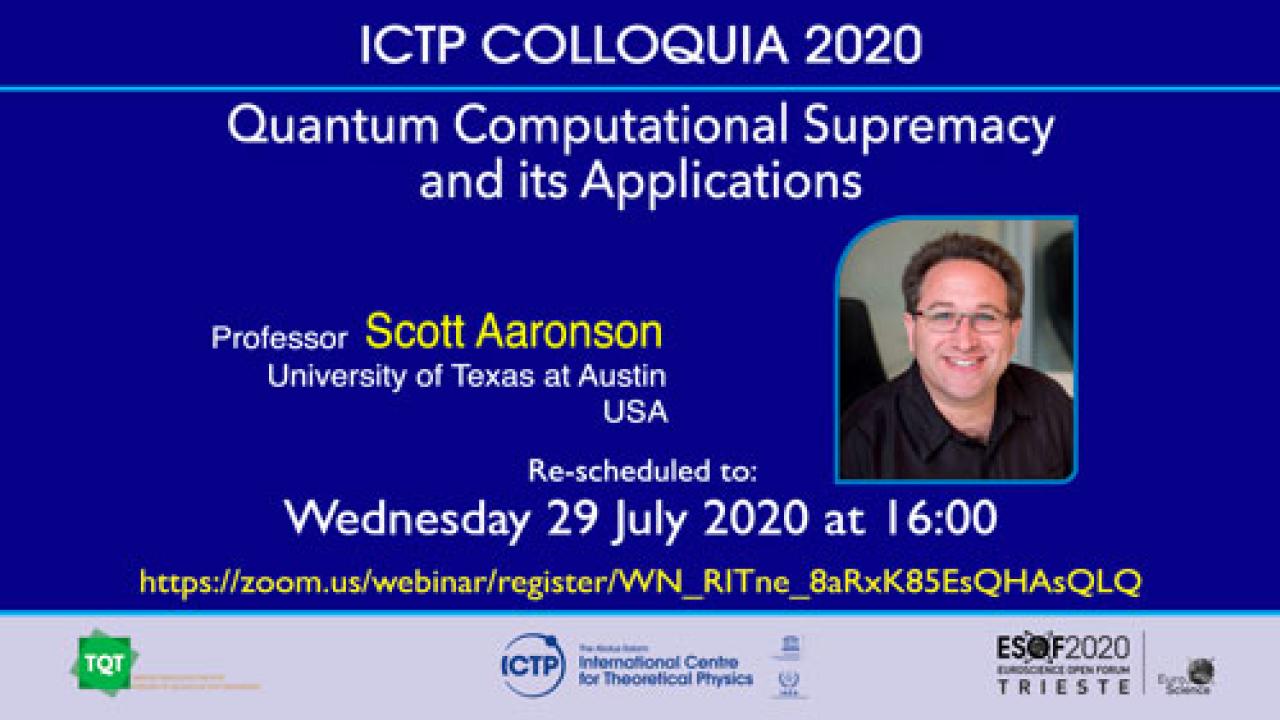
ICTP will be welcoming Scott Aaronson to give the next ICTP Online Colloquium, “Quantum Computational Supremacy and its Applications,” on Wednesday, 29 July 2020, at 16:00 CET. A researcher in quantum complexity theory, Aaronson will be speaking from the University of Texas at Austin, USA, where he is a professor of computer science.
The Colloquium is open to all on Zoom, with pre-registration required, with a question and answer session to follow, and will also be live-streamed on ICTP’s YouTube channel, with a recording posted following the talk.
This event is an initiative of the Trieste Institute for the Theory of Quantum Technologies (TQT). TQT was established in 2019 in collaboration with SISSA and the University of Trieste as an international centre of excellence promoting research in the field of quantum technologies, serving as a catalyst for theoretical activities not only in Italy, but also in neighbouring and developing countries. TQT is hosted on the ICTP Campus.
Aaronson's research in theoretical computer science has focused mainly on the capabilities and limits of quantum computers. His first book, Quantum Computing Since Democritus, was published in 2013 by Cambridge University Press. He received the National Science Foundation’s Alan T. Waterman Award, the United States PECASE Award, and the Tomassoni-Chisesi Prize in Physics.
Abstract: Last fall, a team at Google announced the first-ever demonstration of "quantum computational supremacy" - that is, a clear quantum speedup over a classical computer for some task - using a 53-qubit programmable superconducting chip called Sycamore. Google's accomplishment drew on a decade of research in my field of quantum complexity theory. This talk will discuss questions like: what exactly was the (contrived) problem that Sycamore solved? How does one verify the outputs using a classical computer? And how confident are we that the problem is classically hard - especially in light of subsequent counterclaims by IBM and others? I'll end with a possible application for Google's experiment - namely, the generation of trusted public random bits, for use (for example) in cryptocurrencies - that I've been developing and that Google and NIST are now working to test.
















